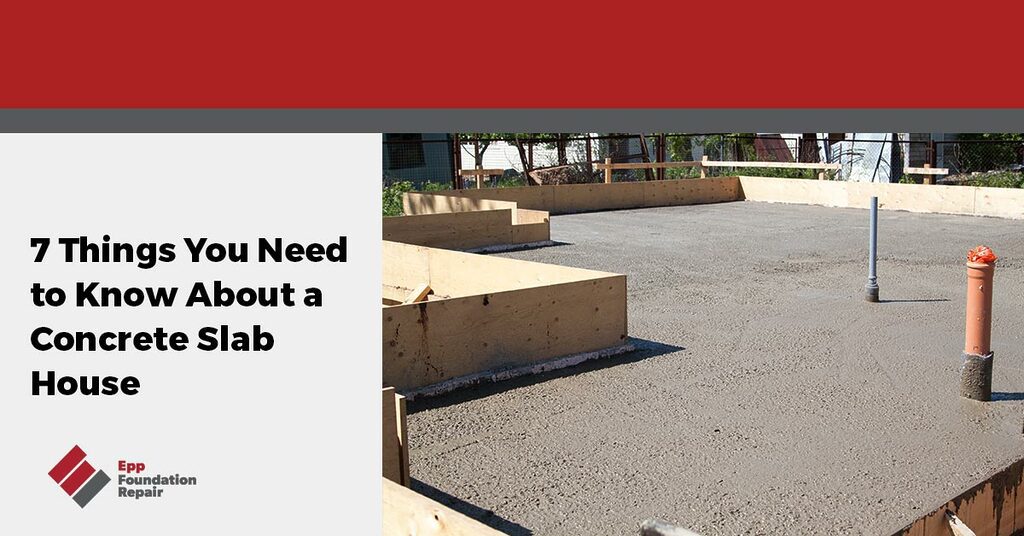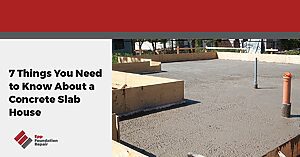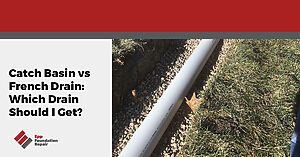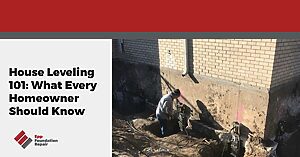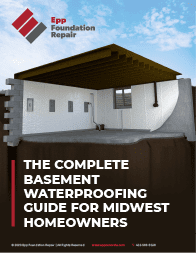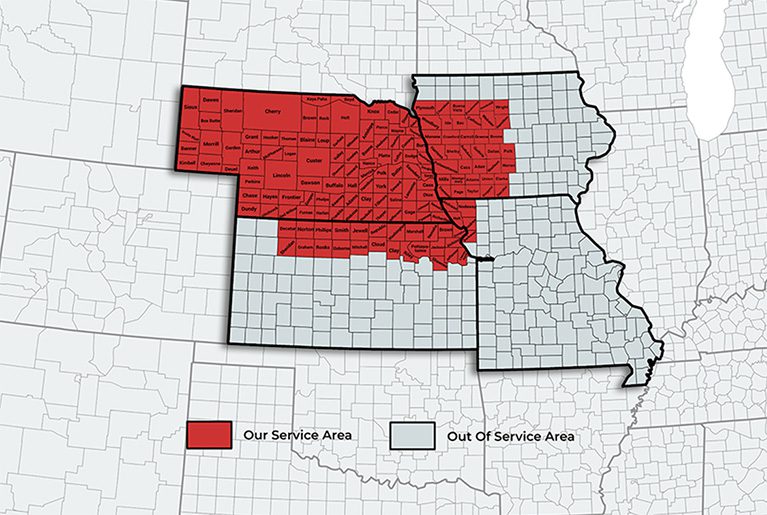As a homeowner, you have many different options available when it comes to your foundation. One of the options that is considered by many is a concrete slab house. This option, often called a slab or a slab-on-grade foundation, has many benefits.
Since this type of foundation is so commonly seen, it’s important to understand the good and the bad associated with it. This can help you choose which foundation you should consider.
7 Things You Need to Know About a Concrete Slab House
If you already live in a home with a concrete slab foundation, then you would do well to understand more about what is supporting the structure. Doing so can alert you to some problems and help you identify what can be done to keep issues from occurring.
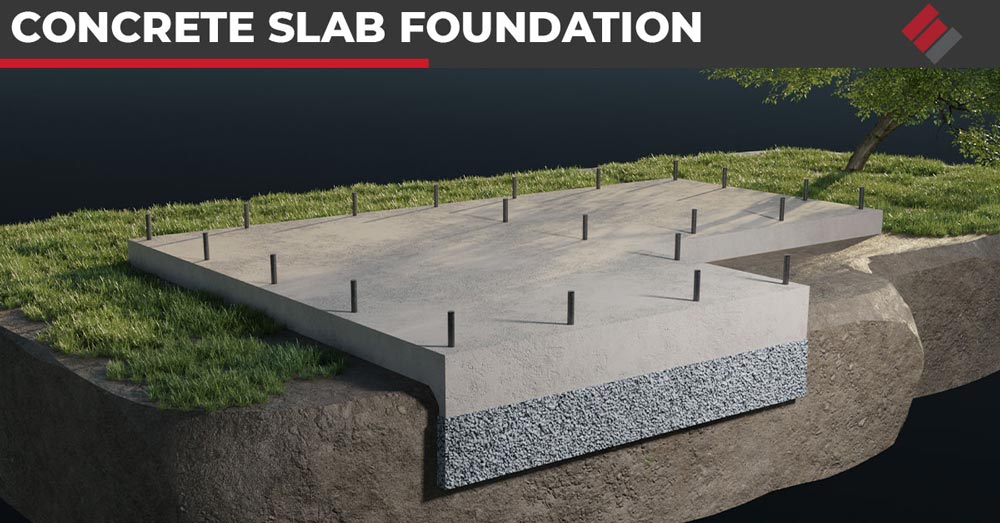
Consider these seven things that you should know about a concrete slab house:
1. Concrete Slab Houses Are Less Expensive
Have you ever considered all the extra work and material that goes into building a basement or crawlspace foundation? Just the extra time involved means a lot of extra money is involved in the process.
Concrete slab houses are often much less expensive because pouring a typical slab foundation only takes a few days. Once in place, the home can be built directly on it.
For more information, check out our post – Slab Foundation Vs Crawl Space
2. Concrete Slab Houses Are Energy Efficient
Air can move relatively easily through a wood floor. The concrete slab, however, slows down the movement of heat, so your home will be warmer in the colder months and cooler in the warmer months.
One of the biggest complaints many homeowners have is high energy costs. Without a basement or crawl space, you will find that your energy costs are lower.
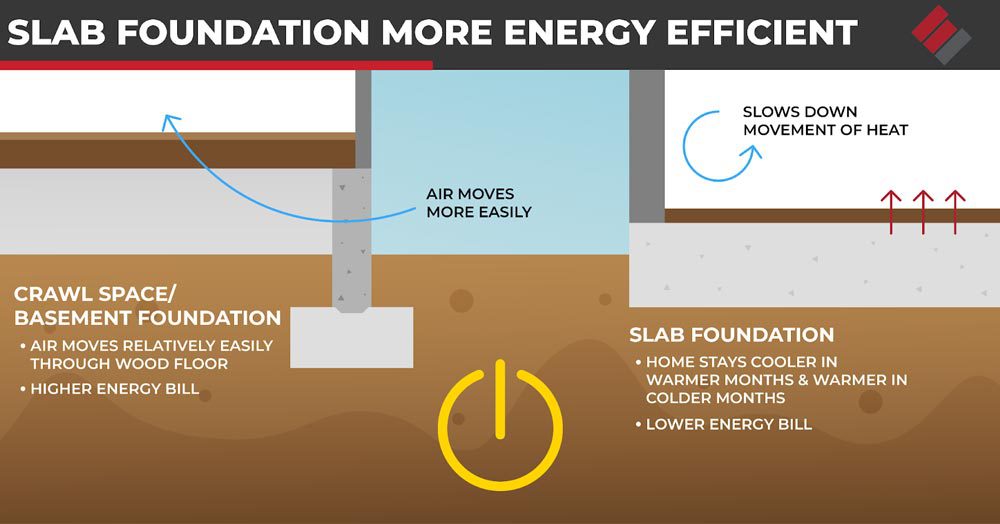
3. Concrete Slab Houses Require Less Maintenance
There is a certain amount of maintenance associated with some foundation types. However, when you consider the possible maintenance connected with a basement or crawlspace, the concrete slab will be much more cost-effective.
Lower maintenance means that there are fewer potential problems. It doesn’t mean the problems don’t exist, but you will have fewer issues to contend with than other foundation types.
4. Concrete Slab Houses Can Settle
Any foundation can experience settling. Foundation settling is an issue often associated with excess water in the soil surrounding the foundation. It can also be associated with the freeze-thaw cycle.
The type of settlement that is a big problem for concrete slab houses is known as differential settlement. Settling occurs when the soil under part of the home cannot adequately support the structure, leading to part of the slab sinking faster than the other part of the slab.
5. Concrete Slabs Can Crack
A certain amount of cracking will occur in any type of concrete. Cracking is common when it cures, but it is often limited to hairline cracks that don’t pose any other problems.
Concrete is not a flexible building material, so when differential settlement occurs, the concrete can eventually crack as part of the slab is no longer supported properly.
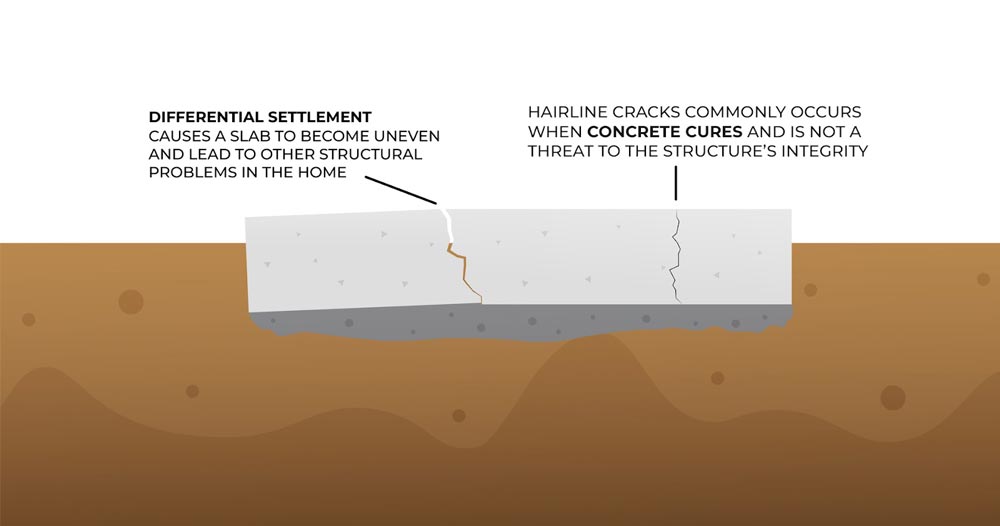
When the slab becomes uneven and cracks, it can lead to various problems. Those problems can include sticking windows and doors, uneven floors, cracks in the walls, and high humidity in the home.
Learn more about – Slab Foundation Repairs
6. Concrete Slabs Should Be Inspected
Just as it is a good idea to inspect any foundation, it is also a good idea to inspect your concrete slab house regularly. The concrete slab may experience cracking or other problems that can be identified with a thorough foundation inspection.
In addition, it is a good idea to contact Epp Foundation Professionals and have them do a foundation inspection regularly. Soil conditions can change, as can moisture content, and once problems with the slab begin to occur, they can progress very quickly.
It is also good to watch for any other signs of foundation failure that may accompany slab foundation problems. These include the issues we mentioned previously, such as sticking windows and doors, uneven floors, cracks in the drywall, or even the chimney tilting or separating from the home.
7. Concrete Slabs Repair Options
Another important factor to remember about slab foundations is that they can be repaired when problems do occur. Discovering the problem early can make the repair process easier, but it will still take a professional to do the work.
Underpinning is the most common type of slab foundation repair. With a slab, holes are bored through the concrete, and slab piers are inserted into the ground until they reach stable soil. The piers are then attached to the underside of the concrete slab to stabilize and lift it.
Concrete slab cracks can also be repaired in various ways, depending upon the nature of the crack and the extent of damage. The cracks will naturally close to a certain extent during the underpinning process, but carbon fiber straps and epoxy injections can finish the job permanently to seal the cracks.
If you have any questions about your concrete slab house or feel that you may be having problems, you can contact Epp Foundation Repair for a foundation inspection. One of our foundation specialists would be happy to help you.

